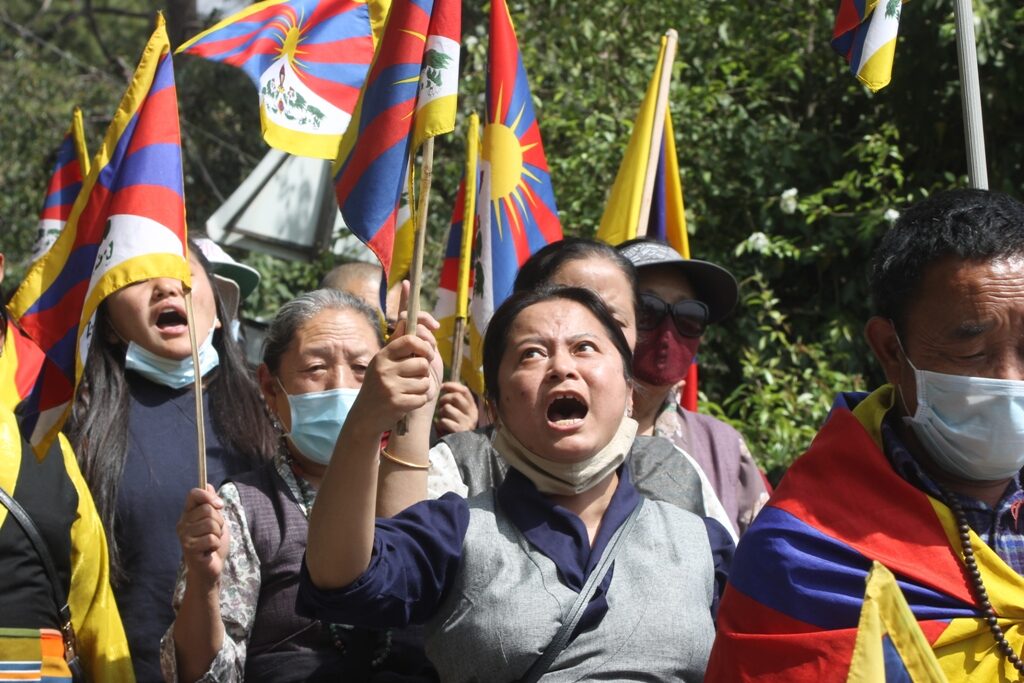‘Tibet Is In A Critical Situation Under Chinese Regime’
Aug 20, 2023 | Pratirodh Bureau
A three-member delegation of the Tibetan Parliament claimed that Tibet has been ranked as the least free country in the world for the third consecutive year, as per the Freedom Index report of the Freedom House
A delegation of the Tibetan parliament in exile claimed on Saturday that under the Chinese regime, their country is in a critical state. The three-member delegation claimed that Tibet has been ranked as the least free country in the world for the third consecutive year, as per the Freedom Index report of the Freedom House.
It appealed to the government of India to call on the Chinese government to re-engage in talks with the Dalai Lama without any preconditions in order to resolve the Tibet-China conflict.
Youdon Aukatsang, one of the members of the delegation said, “The situation in Tibet has deteriorated to the extent of cultural genocide and total annihilation of Tibetan identity.”
Geshi Monlam Tharchin and Tashi Dhondup are the other members of the delegation, which is currently visiting Sikkim, West Bengal and Odisha to highlight the Tibetan cause.
Aukatsang added, “We are looking for genuine autonomy for Tibet where Tibetans will have all the internal autonomy in terms of education, development and environment. We want a totally demilitarised zone.”
Members comprising the delegation said UN human rights experts have expressed serious concern over large-scale colonial boarding schools in Tibet. Levelling allegations of cultural genocide, they have claimed that thousands of Tibetan children were being taken to boarding schools in order to wipe out their Tibetan identity.
Tharchin said the Tibetans in India are very grateful to the country’s government and people for having them here. “While we are flourishing here, our Tibetan brothers and sisters are suffering there,” she added.
“We have been very resilient and hopeful; we have been in exile for over 64 years but our struggle is going on,” Tharchin added and asserted that the future of the Tibetan freedom movement is very strong.
Tibetan emigration has three separate stages. The first stage was in 1959 following the 14th Dalai Lama’s defection to Dharamshala in Himachal Pradesh, India. The second stage occurred in the 1980s, when China partially opened Tibet to foreigners. The third stage began in 1996 and continues today although with less frequency.
Not all emigration from Tibet is permanent; some parents in Tibet sent their children to the communities in the diaspora to receive a traditional Tibetan Buddhist education. The 2009 census registered about 128,000 Tibetans in exile, with the most numerous part of the community living in India, Nepal and Bhutan. However, in 2005 and 2009, there were estimates of up to 150,000 living in exile.
In related news, here’s a look at the Central Tibetan Administration, which is a non-profit political organization based in Dharamshala. Its organization is modeled after an elective parliamentary government, composed of a judiciary branch, a legislative branch, and an executive branch, and is sometimes labelled as a government in exile for Tibet.
The organization was created on 29 May 2011, after the 14th Dalai Lama rejected calls for Tibetan independence; following his decision to not assume any political and administrative authority, the Charter of Tibetans in Exile was updated immediately in May 2011, and all articles related to political duties of the 14th Dalai Lama and regents were repealed.
On 29 April 1959, the then-Dalai Lama re-established the Kashag (Cabinet), which was abolished by the Government of the People’s Republic of China on 28 March 1959. The Tibetan diaspora and refugees support the Central Tibetan Administration by voting for members of its parliament, the Sikyong, and by making annual financial contributions through the use of the “Green Book”. The Central Tibetan Administration also receives international support from other organizations and individuals.
